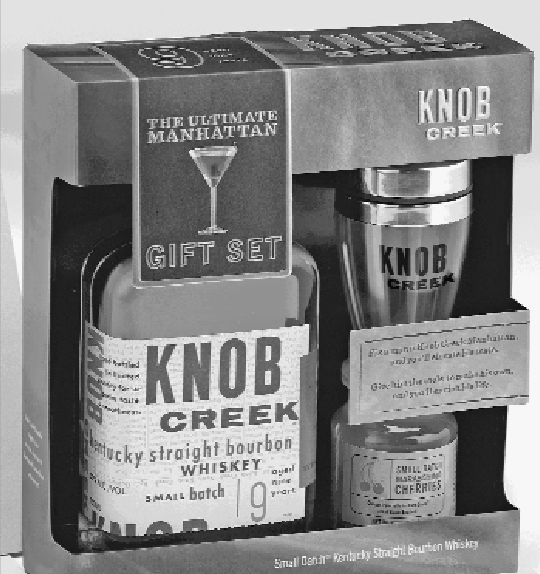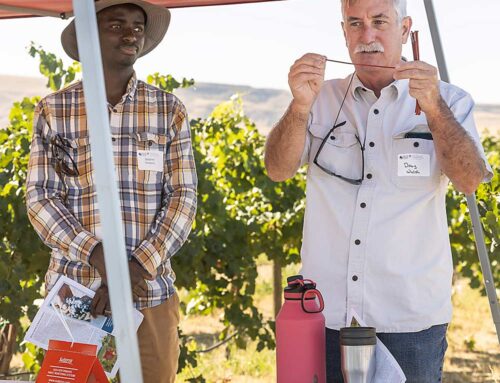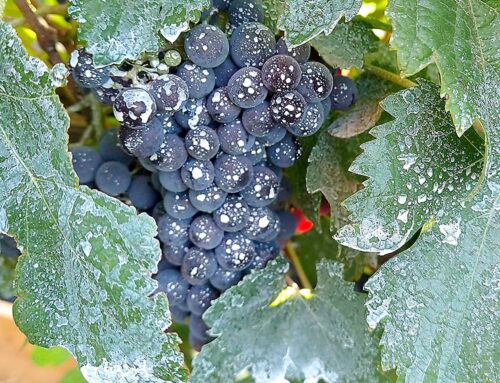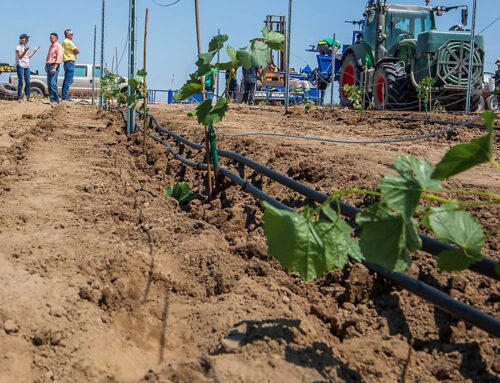
Maraschino cherries are popular in specialty drink gift sets.
A national cherry organization is capitalizing on its unique producer-processor relationship and has found success in promoting its products—despite limited resources. The National Cherry Growers and Industries Foundation exists to promote maraschino, canned, and frozen cherries.
Governed by an 18-member board of briners, canners, and growers from California, Oregon, Washington, Utah, Idaho, and Michigan, the foundation collects contributions from growers and processors of sweet cherries. The foundation was originally formed in 1946 to unify the processed cherry industry and lobby against excessive processed cherry imports.
Today, grower assessments and processor contributions are used for product promotion. Around $300,000 to $325,000 is spent annually on maraschino cherry promotions, with less than $100,000 on frozen and canned promotions, according to Dana Branson, foundation administrator, who also manages the Oregon Sweet Cherry Commission in Hood River, Oregon.
Relationship
The foundation is unusual in that both processors and producers contribute money for promotion and work together, explained Branson. Input from the sales divisions of the processors is used to help guide promotion programs. Five of the major cherry processors are members.
“It provides a positive medium for communication between different production areas like Washington, Michigan, Oregon, and California,” said B.J. Thurlby, president of the Washington State Fruit Commission. The commission collects grower assessments for processed cherries in Washington and passes money to the foundation.
The foundation also compiles industry statistics regarding production, utilization, and sales. Thurlby added that the foundation is looking for positive ways to engage the processors regarding program direction and funding input.
Future Brands
For the last six years, Cheryl Kroupa of Old Mission, Michigan, has served as the foundation’s marketing director. Kroupa, with a background in advertising, is also a tart cherry grower. With such limited promotional funds, she is challenged to find partnerships that share the cost of consumer-oriented and foodservice promotions, she said.
Early on, she identified the liquor industry as a potential partner because of the use of maraschino cherries in beverages. Kroupa hit upon a remarkable partnership with Future Brands (what was the Jim Beam company) to cross-promote cherries at trade shows and on-premise nightclubs and bars, said Josh Reynolds of Gray & Company, a Portland, Oregon, processor of maraschino cherries, glacé fruit, and chocolate cordial cherries, and member of the foundation.
“The hallmark program has been the Sweet Complexity of Cherry Infusion,” Reynolds said, adding that the foundation funds distribution of glass Italian urns to bars around the country for soaking maraschino cherries in bourbon products of Future Brands.
The urns allow the bartender to serve up bourbon drinks flavored with cherries and sell the infused cherries as an extra. Kroupa noted that each urn is filled with a gallon of cherries. The cherry infusion promotion, which included printing collateral material, purchasing, embossing, and distributing the urns, cost $75,000, she said.
“I couldn’t have printed just the collateral for $75,000. And I’ve had all of the sales people for Future Brands working with me.” Since the Future Brands partnership, the foundation now has a front row booth, next to Future Brands, at nightclub and bar trade shows.
Gift packs
Another spin-off from the partnership is the use of maraschino cherries in holiday liquor gift packs. The alcoholic beverage companies putting the gift packs together purchase jars of maraschino cherries from processors for the gift set that includes all the makings for Manhattans and other specialty drinks.
“Cherries now are a part of their family,” Kroupa said, referring to Future Brands. She has also had success on the consumer promotion side of maraschino cherries, partnering with the national cooking club publication called Cooking Pleasures and the holiday issue of Martha Stewart’s Kids magazine.
An investment of about $22,000 resulted in full-page advertorials that reached an audience of more than seven million people. The foundation’s promotion program has also included contests for new drinks, both alcoholic and nonalcoholic, that use cherries and financial incentives to restaurants that put new cherry drinks on their menus.
Kroupa is also targeting the entertainment world through what’s known as entertainment marketing. A stipend is paid to a company that looks for opportunity to use maraschino cherries in entertainment venues—television, cable, and movie scripts, and such.
She estimated that the industry received advertising valued at $5 million last year through entertainment marketing. One year, they received almost $8 million worth of advertising. The annual stipend paid to the company that reads scripts and searches for opportunities is $65,000.
While the ultimate would be to have Harry Potter say “I love maraschino cherries,” even featuring cherries on top of sundaes in a movie helps to encourage sales and reinforce consumer purchases, she said. Kroupa admitted that canned and frozen promotions are more difficult and challenging.
The promotion funds available for canned and frozen product are much less—about one-third of those for maraschino cherries. “With canned and frozen products, it’s tough,” she said. “Maraschino sells well, but when it comes to canned and frozen products, consumers can also use fresh cherries.”
On the West Coast, the availability of canned and frozen products changes from year to year, depending on the quality and size of cherries packed during the season, Kroupa said. But on the East Coast, nearly all of the dark, sweet cherries are destined for the processor.
Kroupa is working to form partnerships with the International Association of Culinary Professionals and the Food Editors Council to develop a more effective program for frozen and canned products. Currently, Michigan cherry growers are the only growers supporting the canned and frozen promotion program. Washington and Oregon cherry commodity boards are not collecting assessments for canned and frozen promotions from their growers.






Leave A Comment